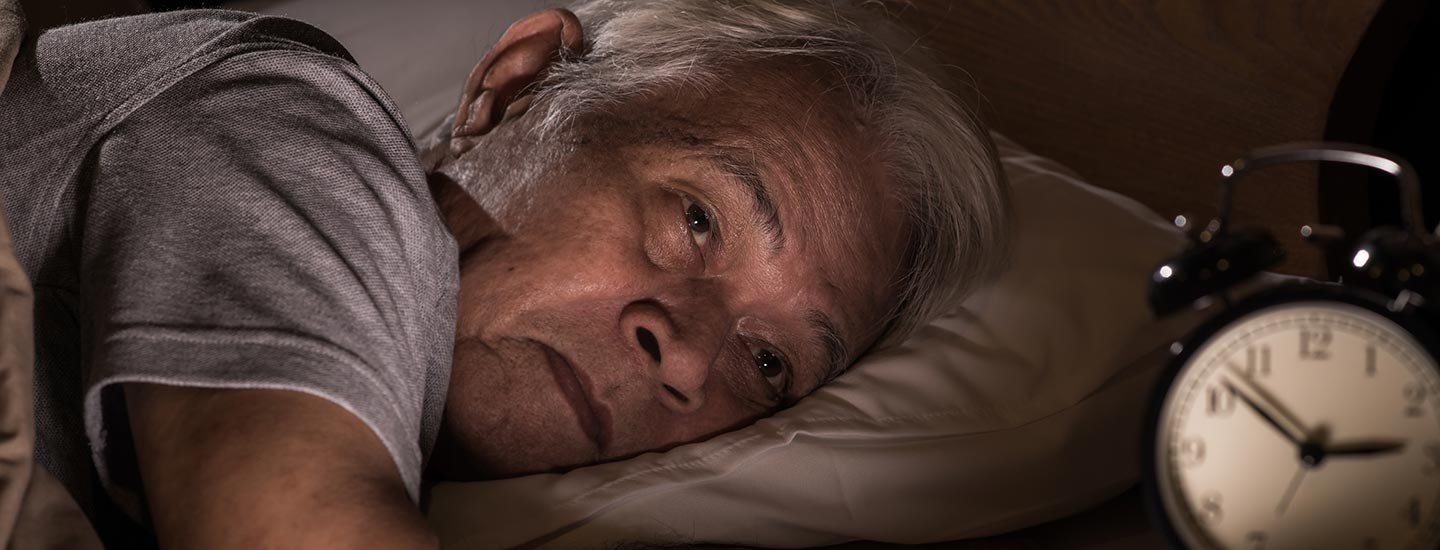Adding Ambien to an SSRI Antidepressant Could Help Some Depressed Patients with Severe Insomnia
Adding Ambien to an SSRI Antidepressant Could Help Some Depressed Patients with Severe Insomnia

New research suggests that in some cases, patients with major depressive disorder whose symptoms include both insomnia and suicidal ideation (thinking about suicide) may benefit by regularly taking a prescription sleep medication, such as Ambien, when they begin treatment with an SSRI antidepressant such as Prozac or Zoloft.
A research team led by William McCall, M.D., of the Medical College of Georgia, Ruth Benca, M.D., Ph.D., and Andrew D. Krystal, M.D., a 1997 and 1993 BBRF Young Investigator, set out to test whether targeting insomnia symptoms in such patients might reduce their risk of suicide.
Among the rationales for this approach, the team reported, is evidence indicating that changes in insomnia symptoms precede suicidal ideation in patients with major depressive disorder. Furthermore, they said, patients with insomnia and survivors of suicide attempts—compared with those who have not made a suicide attempt—perform less well on tests measuring the ability to solve interpersonal problems. “Impaired problem solving associated with insomnia could play a role in suicide,” they wrote.
To test this theory, they enrolled 103 medication-free individuals with major depressive disorder, insomnia, and suicidal ideation in a double-blinded randomized clinical test. The average patient was about 40 years old; 62% were female. All received an SSRI antidepressant in the 8-week trial; half also received time-released Ambien (Zolpidem-CR), while half received a placebo in lieu of active sleep medicine.
None of the patients attempted suicide during the trial. At its conclusion, the researchers, reporting in the American Journal of Psychiatry, concluded that the addition of Ambien to an SSRI was superior to placebo plus an SSRI in reducing insomnia symptoms. The advantage of adding Ambien was most evident in those patients whose insomnia was severe when the trial began.
The results were less clear regarding whether adding Ambien to an SSRI helped to reduce suicidal ideation. “The clinical significance of the advantage seen for suicidal ideation was modest, even in the severe insomnia group,” the team reported. One clinical measure of suicidal ideation did show a benefit while another measure did not.
Taking all the evidence into consideration, the team—which also included Steven Szabo, M.D., Ph.D., a 2012 and 2003 BBRF Young Investigator—concluded that “while the results do not support the routine prescription of sleep medicine for mitigating suicidal ideation in all depressed patients with insomnia, they do suggest that co-prescription of a sleep medicine during initiation of an antidepressant may be beneficial in suicidal outpatients, especially those with severe insomnia.”
The team also said that in their view, the safety findings of their study were as important as those about effectiveness of adding Ambien to an SSRI. There is a known risk of abuse of sleep medicines, and ample record of their use in suicide attempts. “We found that it is possible to selectively recruit and safely retain suicidal outpatients with major depression in a randomized clinical trial involving pharmacotherapy,” they reported. The researchers detected no worsening of suicidal ideation in the participants, suggesting to them that in properly controlled situations, patients at risk of suicide can indeed be subjects in randomized trials involving psychotropic medicines—i.e., medicines that affect an individual’s mental state.



